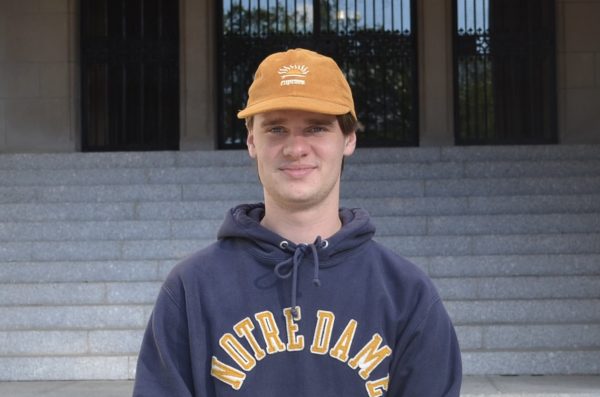For as long as I can remember, I have been what people call “a morning person.” I tend to wake up before it is light outside; I often do the vast majority of my work prior to the first chiming of the church bells and I often find my existence reduced to a state of furtive silence that aims not to wake the rest of the slumbering world up. Even now, as I sit at my desk to write this reflection, the blue-gray light of an October sky has just barely begun to sneak its way through my window.
Obviously, for most college students, this odd, perhaps even masochistic, tendency of mine begs the question — Why? Why do I get up so terribly early when the alternative of sleeping in is so pleasant? Why do I continuously choose to submit myself to the cold darkness of the morning when my bed is such a wonderful place of warm refuge? Why do I continue to choose existence in that lonely, liminal space between night and day where nary a soul moves?
My answer is complicated … To be sure, there are certainly practical benefits that I enjoy from being up before everyone else. Namely, the problems and anxieties of the mundane are alien to the world of daybreak — the availability of apartment bathrooms/showers, the existence of long lines and limited seating at the cafeteria and the presence of outside distractions when trying to work are not things that one needs to worry about.
Yet, these considerations of utility are not exactly what I would consider to be the constituent ground of my impetus to wake up so early in the morning — they are merely aberrant benefits. Instead, I think my rationale for being a morning person falls more along existential lines. More specifically, it is rooted in the reality that waking up early gives a person a unique access to the world as such (i.e., free from outside imposition).
Consider for a moment just how much of one’s daily existence is mediated by all the movement and sound that comes from a fully awake Rose Hill student body. What one sees, what one hears and what one experiences is fundamentally different from a world at rest. After all, not only is the natural world forced to change itself in the face of human activity (e.g., a campus cat is much less likely to emerge from its resting place with cars and foot traffic bustling all around it), but every single individual is also infinitely more likely to find their subjectivity occupied and burdened by those around them: by their loud voices, their flashy outfits, their awkward movements, their sudden laughter and their imposing presence. In other words, in a world where everyone is awake, one’s horizon of experience begins to orient itself towards the human, towards the impositional, towards the obtrusive.
This really does not happen to a solitary wayfarer at daybreak. No, in the morning, everything is simply freer to exist on its own terms, to exist as it was meant to be: beautiful and unencumbered. One is allowed to stand still and watch the dark morning clouds tumble wistfully across the vault of heaven, these dark ephemera coming in and out of view as they glide over the still-visible afterlives of last night’s stars. One is able to sit quietly on a bench and feel the cold morning wind enfold everything in its grasp, its icy appendages all-consuming and howling as they snake their way through the gnarled branches of the nearest tree.
Most importantly, however, one is truly free to think to oneself in this unencumbered world — there is no outside influence or force capable of imposing itself upon one’s internal stream of consciousness. Instead, there is only an emptiness and the mental clarity that it so often gives way to; there is only a nothingness and its demand to be filled by reflection.
Yet, all of what has been said here is nothing more than philosophical conjecture superimposed upon a page. Its connection to experiential reality is, at best, tenuous. Thus, I would challenge each and every person to wake up early one day and allow the morning to speak for itself and to its own value. There is nothing quite like it.
Jonah Ring, FCRH ‘26, is a theology major and philosophy and art history minor from Norfolk, Virginia.










































































































































































































